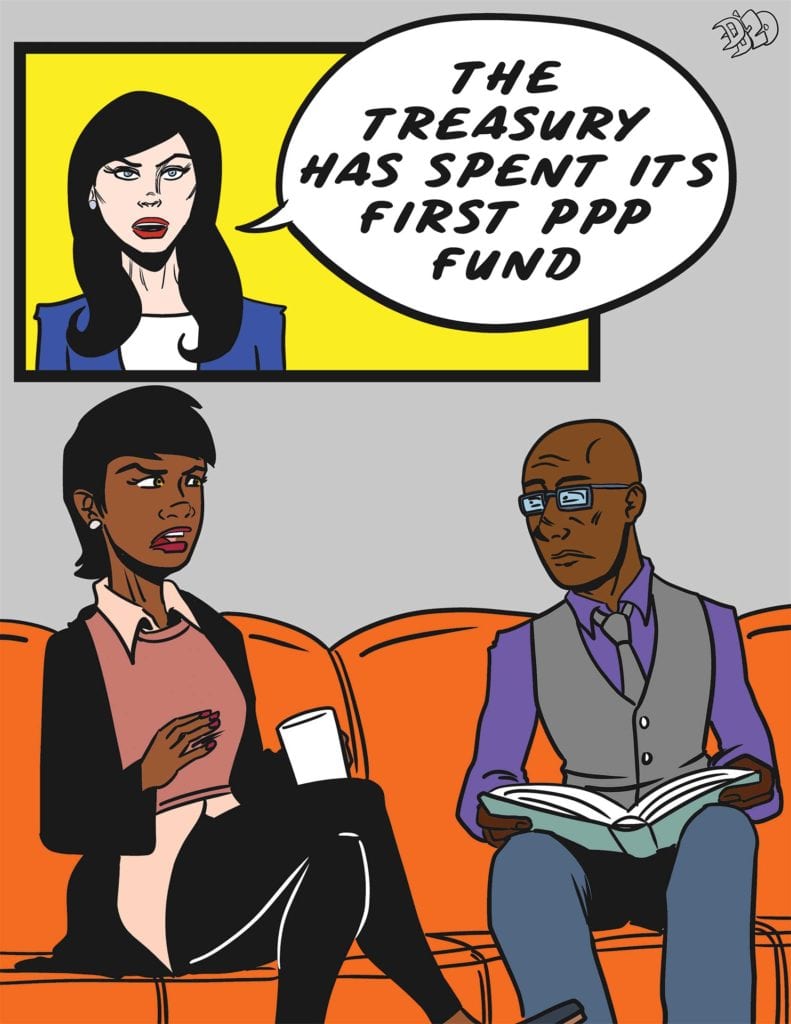
Many small businesses that have been ravaged by the coronavirus pandemic were hoping that the federal Paycheck Protection Program (PPP) would provide the funds to prevent the layoff of important employees. However, the original $349 billion provided in the first tranche of funds went to companies that would not be considered small businesses by most people.
The program is managed by the U.S. Small Business Administration, but businesses do not apply directly to the SBA. Applicants submit requests for funds through their commercial banks. As might be expected, banks saw to it that their larger customers who met the SBA requirements were first in line.
The problem is that the SBA standard for what constitutes a small business is too pervasive. According to the SBA, there are about 28 million small businesses, and they account for about 99% of all business enterprises. Whether a business is small or large depends on the industry. The SBA makes a decision as to size depending on the number of employees and the annual revenue of a company in comparison with other companies in that industry.
This approach works effectively in most cases. The SBA finds that 89% of small businesses have fewer than 20 employees. However, this analysis fails when every subordinate unit of a big enterprise can be considered to be a small business. For example, every franchise of a national food chain could be considered to be a small business.
Public reaction was irate when it was publicized that several businesses and institutions considered to be large had received federal funds. The Shake Shack, Ruth’s Chris Steak House, and some hotels were allocated funds as well as Harvard University, Boston University, Boston College, Northeastern University, MIT and UMass Amherst. Half of the funds paid to colleges was to provide financial aid to students.
While federal funds to enhance academic opportunities is a desirable objective, the primary objective of the PPP was to prevent the whole business economy from collapsing because of coronavirus. Roughly 48% of those in the workforce are employed by small businesses, many of which will be unable to survive the financial damage created by the pandemic.
The collapse of the business community in the U.S. is comparable to what happened in Europe after World War II. Europe was devastated by the war, so the U.S. implemented the Marshall Plan in 1948 for the economic recovery of Western Europe. U.S. funds were used to revive industry in the United Kingdom, France and West Germany as well as other allied nations. Even though Germany had been a war-time opponent, the new battle was to compete successfully against the Soviet Union.
The investment of $12 billion U.S. dollars in Europe, the equivalent of $128 billion as of 2020, has been imaginative and successful. It was financially profitable, and it helped to boost the U.S. to world leadership with a compatible group of European allies. Some economists have suggested a similar plan to enhance the economic status of small businesses in the U.S. that have limited access to capital.
It may well be that the coronavirus will force Americans to develop an economic plan that will enable the country to narrow the wealth disparity gap. In World War II the enemy was the Axis forces. Now the adversary is the coronavirus, and that is even more deadly. Unfortunately, an invisible microbe as an antagonist cannot inspire the sense of patriotism in Americans that existed with Nazis in the opposing foxholes.
This is a battle that Americans can lose unless there is a greater intensity in the patriotic spirit that brought the country to victory in World War II.


![Banner [Virtual] Art Gallery](https://baystatebanner.com/wp-content/uploads/2024/04/Cagen-Luse_Men-at-store-e1713991226112-150x150.jpg)



